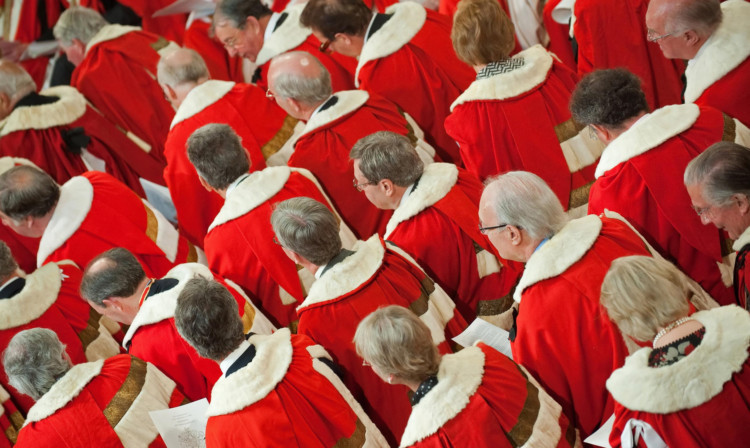
It’s the biggest day in the parliamentary calendar this Wednesday but the Queen’s Speech is expected to be one of the shortest on record.
With the government having passed all the landmark legislation it wanted to since taking power the State Opening of Parliament is likely to provide pretty thin fare.
Details of the speech are not released in advance but there’s been some heavy hints about what might be to come.
There’ll definitely be a Pensions Bill to put into practice Chancellor George Osborne’s Budget pledge to scrap the obligation to buy an annuity upon retirement.
There will likely be legislation on infrastructure to speed up broadband roll out and make fracking easier, plus bills on childcare and child neglect and maybe something on zero hours contracts.
It all adds up to not a lot, suggesting there will be plenty of time for electioneering in this last year of the country’s first fixed term five year parliament.
All the more reason to scrap the pomp and circumstance according to one veteran parliamentarian.
Lord Foulkes said: “The Coalition is running out of steam. The country is ready for an election but can’t have one till next May. Fixed term parliaments reduce the flexibility and mean we’ll have a longer election campaign that has effectively already started.”
George Foulkes former MP and MSP now Lord Foulkes is the mastermind behind Labour plans to rewrite the constitution. Though even the proposals drawn up by his fellow peers don’t go far enough for him.
He said: “I would have only one Queen’s Speech in a parliament. Why can’t a government just lay out the programme for five years and then bring in legislation?”
What did make it into Labour’s blueprint is a pledge to spare stoats across the land by scrapping peers’ ermine robes.
He explained: “The robes are symbolic but I think they’re the wrong symbol. I get lots of people who tweet about peers and their robes as if we sit every day wearing them. All they need to do is watch the parliamentary channel to see that’s not true.”
Trouble is hardly anyone watches. If they are seen at all it’s the one day of the year when they do wear robes the State Opening of Parliament.
Added Foulkes: “I think we should model ourselves on senates around the world. There’s no legislative body with more authority than the US senate and they don’t wear robes.”
But US senators are elected.
The Labour plans, which Lord Foulkes is “90% certain” will make it into the party’s manifesto next year, include proposals for shaking up the House of Lords. The number of peers would be slashed by about half and those remaining would have to commit to turning up a certain number of days and actually working.
Recent reforms drawn up by Lord Steel expanded the Lords retirement scheme, Lord Foulkes would enforce retirement at 80. He’s confident Labour can succeed in reforming the upper chamber where the Coalition failed.
Explained Lord Foulkes: “This government’s efforts to reform the House of Lords fell apart because it was left to Nick Clegg and he came up with a stupid method of election. We’ll have to persuade people. It’s not going to be easy, there’s no doubt about that.”
Vital to the Labour plan is the setting up of a constitutional commission to consider not just the future of the second chamber Foulkes favours a form of indirect election in which MPs, MSPs and councillors would nominate senators but also how to extend devolution if, as expected, Scotland votes to stay in the UK.
Foulkes said: “It’s the confluence of two river. There’s the pressure to reform the House of Lords and the need to look at the decentralisation and devolution of power.”

Enjoy the convenience of having The Sunday Post delivered as a digital ePaper straight to your smartphone, tablet or computer.
Subscribe for only £5.49 a month and enjoy all the benefits of the printed paper as a digital replica.
Subscribe